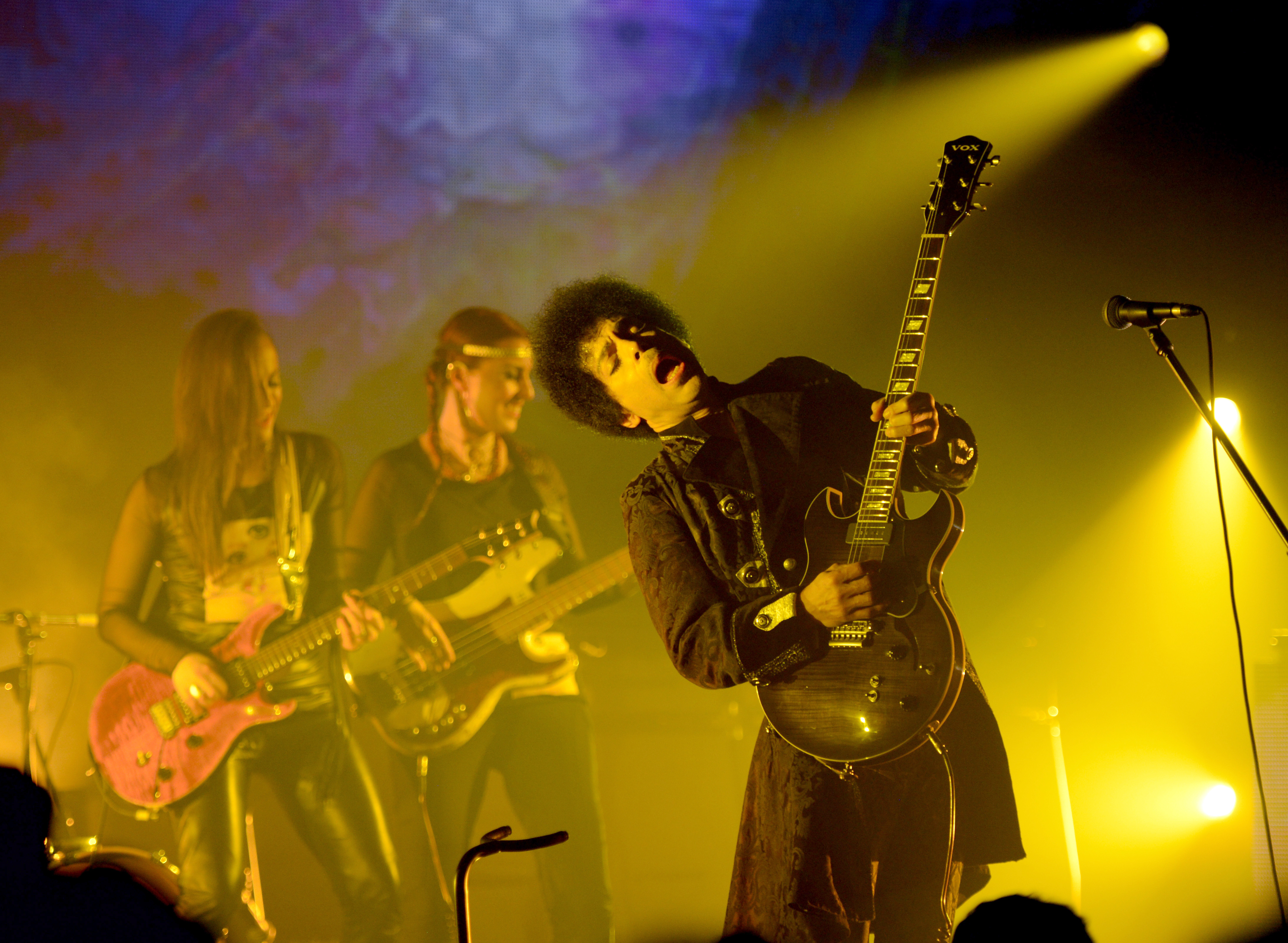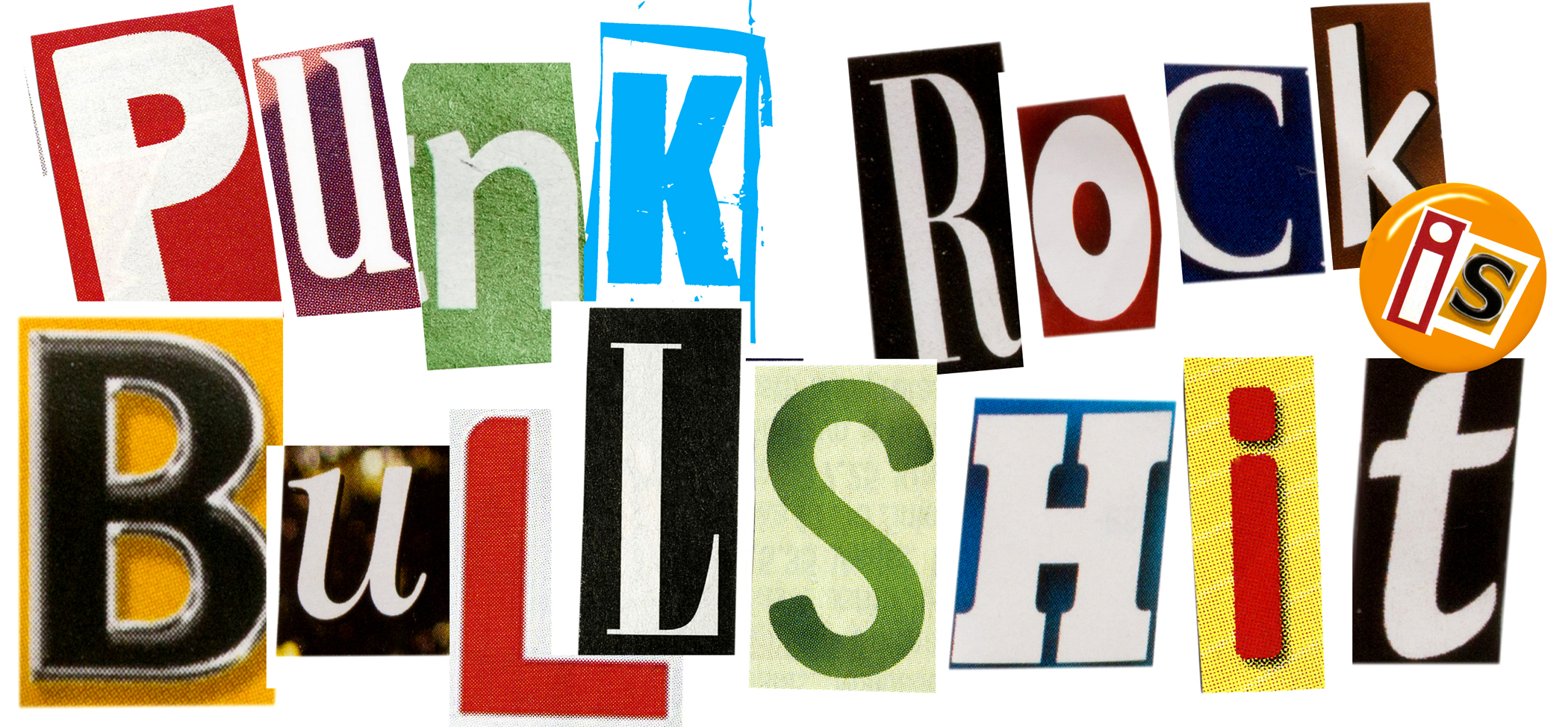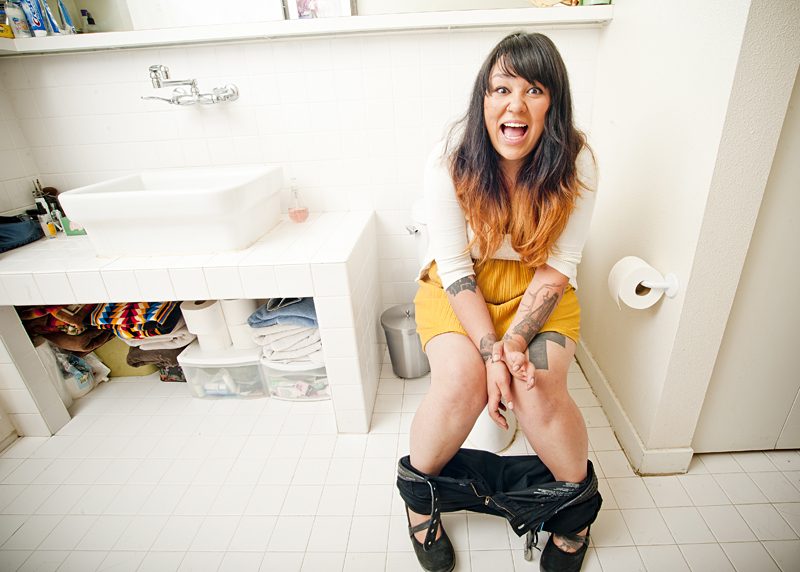For those readers unfamiliar with the work of my band, The Long Winters, I’m going to delve into the history of my little corner of the Seattle music scene in order to answer the question: “Why does this ding-dong have a music column for the Seattle Weekly”? Seattle has produced four or five complete generations of music in the time I’ve been hanging around, and although I played almost no role in any of them, I witnessed them all from the back of the bar. The life I lead now, as a singer-songwriter with a full-time band and a small but devoted legion of fans, would have been inconceivable to me when I first arrived in Seattle, even more unlikely after I’d been here a while, and I expect still hard to comprehend for some of the musicians who’ve played alongside me. The drummer in my first Seattle band, back in 1991, once said to me, “If we haven’t made it by the time we’re 24, I’m quitting music.” He was the sort of guy given to making pronouncements like that (he also told me he wouldn’t play “slow” tempos, mostly because he couldn’t) but he was expressing a common sentiment, one I heard often from other musicians and one I felt myself at that age. We were both twenty-two at the time and our band, Chautauqua, had never played a show, but we both thought we understood a great truth about being a rock musician: If you haven’t made it by the time you’re twenty-four, you ain’t gonna. But I’m getting ahead of myself.I got started in the Seattle music scene by accident, and I was incredibly unlikely to succeed. I had no intention of being a musician, hadn’t really even intended to move to Seattle, didn’t want to be a rocker dude, didn’t care about bands, and didn’t really play guitar. I could play a few chords I learned in high school and had written a few “blues” songs about “life on the road”, but they were terrible songs and I had enough taste to know it. Honestly, although I admired the rock n’ roll “lifers” who wore engineer boots and denim vests, for the most part I thought rock culture was too dull-witted to take seriously. I wanted to be a writer, like Raymond Carver or Paul Bowles. I wore my sweaters inside out and had been hitchhiking around America, trying to be gritty and hard-bitten until the brilliant writing poured forth. Every day I wrote in my spiral notebook and every day my writing was crap. I couldn’t figure out what I was doing wrong.I arrived here in the fall of 1990 with no money and no prospects. Some kids I knew from Anchorage were renting a big house on the edge of the U District, with a half-dozen punkers squatting in their closets and kitchen cabinets, and I followed them home. They’d moved up from Olympia and their band, Motor Virus, practiced in the basement, along with the all-girl punk band Dickless and a newly arrived Tucson band called The Supersuckers. They had four Marshall stacks in a room just big enough for a washer and drier. I shared a bedroom with a fellow Alaskan who made money by picking psychedelic mushrooms on the UW campus and selling them to frat boys. He slept on the single mattress and I slept on the floor with a rolled up sweater for a pillow. One afternoon I was loafing around the house when the phone rang. It was the promoter of the OK Hotel, looking for one of my housemates to work security at a DOA concert that night. I told him no one was home and he said, “What about you?” That was my first “music industry” job, crouching onstage at a DOA show with instructions to tackle stage-divers and throw them back into the crowd, where they were heading anyway. The singer, Joey Shithead, whipped out a chainsaw and started waving it around in full punk rock theatrical glory, before promptly cutting off the tip of his own finger. That show ended rather abruptly. My high school girlfriend’s older sister graduated from the UW in 1990 and, in the fashion of the time, had declared herself unequivocally and irrevocably a lesbian. (She’s now happily married in the Tri-cities with three kids). She was working as a bartender in a seedy gay bar next to I-5 and clued me in to the fact that the owner was going to start booking rock bands and wanted to hire some straight kids to work the shows. It was January 1991 and I’d been kicked out of my punk rock crash pad, left to sleep during the day at the Godfather’s Pizza on Broadway and wander around in the rain at night, feeling gritty and hard-bitten. I applied for a job and was the second straight kid hired full time, after Sue the ticket girl.The transition from gay bar to rock club didn’t happen overnight, the first few months we alternated between rock shows, drag shows, lesbian dance parties, and leather daddy nights. In 1991 gay culture was not fully “out” in the mainstream, and gay clubs like this one were sacred places where people could really express themselves. Drag shows were still enormously popular, and the Imperial Court of Seattle was a big deal. I played it fairly cool my first couple of weeks, acting unfazed and jaded, but the first leather night I cowered in the back. Three hundred crew-cut guys in leather chaps chatting softly in a room that smelled of lavender while various young men were being spanked onstage, and me, twenty-one years old with a peach-fuzz beard, carrying drinks on a tray. Yikes! The manager, a leather-daddy himself, had to force me out on the floor by rattling his handcuffs at me. Gradually the club hosted fewer and fewer gay nights, and hired more and more kids to work the rock and roll. By the spring of 1991 Grunge was exploding and we were at the center of it. We had five hundred people every night of the week watching three shitty bands torture their Les Pauls, and when a band like Hammerbox or Gruntruck played we would violate every fire code, every labor law, and every concept of human decency. I watched Seattle turn from a dumpy seaport with a dismal and cynical Punk scene into an international entertainment Mecca in the space of six months. The bar was called the Off Ramp, later the Graceland, now El Corazon, and for a while it felt like the center of the universe.I worked as a busser, then security, then got “promoted” to cook, slinging short-order fries and nachos to a thousand Heshers a night, and then another round of eggs and hash browns at two AM. The dishwasher was a guy named Mark, who played guitar in a fairly terrible band called Mach Turtle. In fact, all the members of Mach Turtle worked at the Off Ramp, and most of them lived in an apartment upstairs where they also practiced. They were punk rock “lifers,” doing crimes and eating sushi without paying. One day we were talking about his band and I asked him how old he was. He said he was 29 and I asked him point blank, “Aren’t you a little old to still be punk rock?” He looked at me like I’d pissed on his shoes, and then laughed. “No,” he said, “I’m not.” Mark went on to form the band ZEKE with Mach Turtle drummer Donny Paycheck and they became international punk-rock superstars. Meanwhile I’d started writing songs. I listened to bands every night of the week at my job, and every major band of the era passed through our bar. It didn’t seem so hard, being a musician, and I formed my own band, Chautauqua as an antidote to all the bogus sub-glam metal being drilled into my head. Chautauqua played jangly pop of a kind that many years later would be referred to as “indie-rock”, but at the time was widely regarded as “pussy” and/or “weak.” We practiced three times a week for over a year without ever booking a show, and our four song demo tape was recorded the same week that both Nirvana’s Nevermind and Pearl Jam’s
Ten were released. Clearly we had our finger on the pulse of the times.Eventually I was fired from the Off Ramp when the bar was sold to new owners, and Chautauqua broke up unceremoniously without ever playing out. My bandmates almost immediately formed another band, called first Junior and later El Dopa, with a new lead singer, and proceeded to book shows in actual bars. The Grunge heyday was in full swing and I had no band, and no prospects. By 1993 I was all but washed up. I gave my guitar and amp to some girls I knew in a band called Cat Food, and they spelled my name wrong in the “thank yous” on their seven-inch. Mostly I drank beer, smoked cigarettes, worked a series of thankless jobs, and silently accused well-known musicians of being sell-outs. Still, despite my desolation, I kept writing songs. I never played them for anyone, but I’d found a kind of writing I enjoyed.During this period I ran into Mark from ZEKE in Pioneer Square and he asked how I was doing. His band was kicking ass at the time, so I confided to him that although I didn’t have a band, I was still writing songs. “Aren’t you kind of old?” he smirked. I was twenty-five.Part Two: next week







